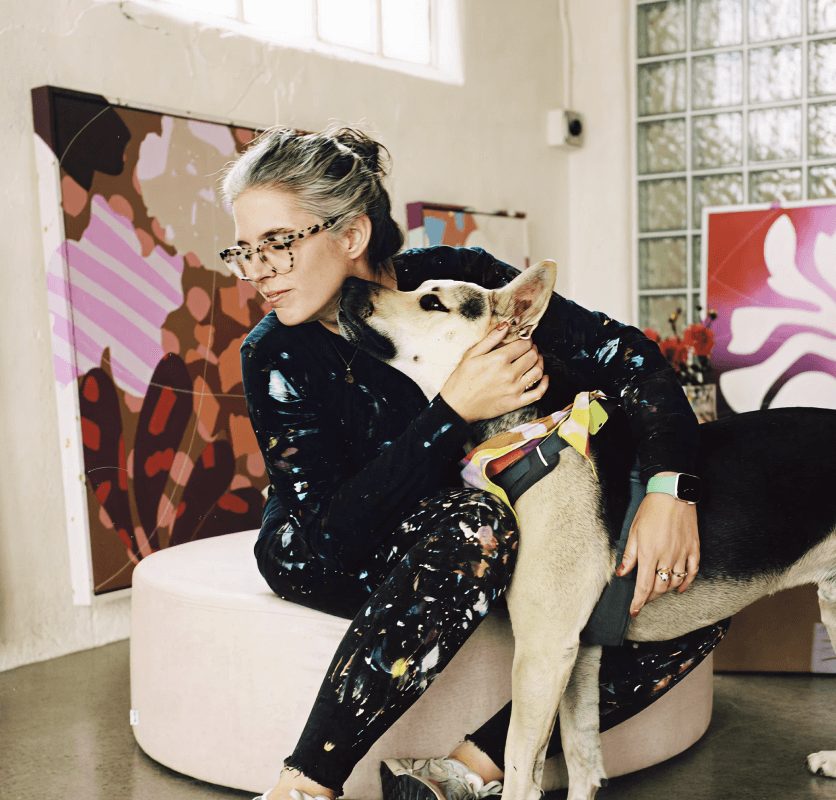BY HUGO LA HEI
The number one reason I thought that I couldn’t be autistic is that I’m fucking good at being social.
When I enter a social situation, I’m on! I crank up the charm. I make friends easily. I can mimic social scripts–I know what to say when someone shares that a family member died, or that they got a promotion at work.
Outwardly, it might appear that I understand social cues better than most people. But then I realized something: I don’t read social situations naturally. It’s not innate. I’ve learned by mentally mapping out countless interactions, creating strategies for how people might react, and planning how to respond.
Every person I meet is a puzzle. I apply my social map to them like a template. I study their humor, what makes them frown or smile, what faces they make when they say one thing but mean another. I’ve learned, for example, that when someone asks if I want to get a coffee, they aren’t literally asking me if I want to drink coffee–they mean they want to sit and chat at a coffee shop. I don’t need to tell them no if I want to drink tea.
My endless processing and mapping of information is a mask I wear to hide that I’m not naturally wired this way.
Most neurodiverse people say they use similar strategies in social situations. Sometimes we call it masking. Sometimes it’s called camouflaging. But underneath, it’s always the same thing:
Exhausting.
Right now, all around us, there are other folks with neurodiverse traits who are also hiding in plain sight. We navigate the world like spies, codebreaking everyday conversations, analyzing every human interaction in real time. We catalog reactions, responses, and facial expressions like clues at a crime scene, running mental analysis to match the “right” response.
This constant decoding helps us move through the world unnoticed. We don’t stand out–even to each other–because we’ve become master mask-wearers, working hard to blend in, while simultaneously working to understand what’s not instinctive to us.
Sometimes, wearing the mask even lets us hide from ourselves.
But eventually, it gets too exhausting to keep up. At least it did for me.
The endless processing brought me to a point of total burnout. I realized the energy I was putting into escaping invalidation was doing the opposite–it was killing me. I was a shell of myself.
I had to take off the mask.
Stepping back from constant hypervigilance was a relief. Rather than scanning and evaluating all the clues around me, I have started to let myself say the wrong thing, respond in a cringey way, and get uncomfortable in social situations.
And sometimes it’s painfully awkward. Like when I go off about something I really love, and I get so excited that I forget the other person might not care. Suddenly I’ll look up and see that look on their face. I’ll realize I’ve completely missed the social cue, that they’re just humoring me, waiting for me to stop–that I’m wasting their time.
These moments are mortifying. To go from pure excitement and joy to thinly veiled rejection is scary, jarring and disheartening.
But these cringe moments also weed people out. Because these are the times I’m my most authentic self, neurodiversity and all. I’ve presented myself totally naked, and it’s up to the other person to accept or reject me. I’ve learned that the people who cringe were never going to accept me in the first place.
Taking the mask off does more than shed an extra weight–it opens the door to more genuine connections, with people who don’t need us to hide who we really are.
So the next time you go into social decoder mode, consider stopping. Risk stepping forward with courage, as yourself. Try dropping your mask. Be open to just existing, without evaluating or assimilating.
Unmasking may be uncomfortable as hell, but it’s worth the relief and authenticity you feel.
It’s worth being you.
Discuss This Article



